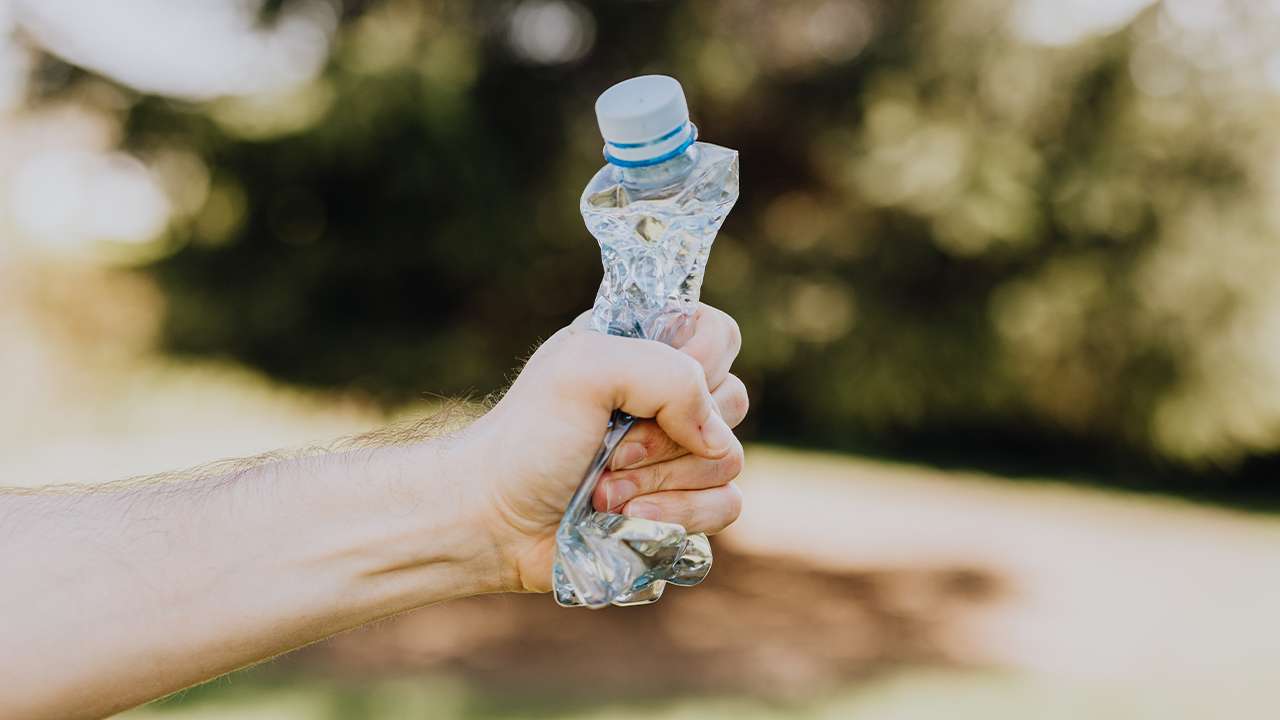POSTED Mar 22, 2022 - 06:29 PM
The food industry’s plastic waste problem
Next to actual ingredients, plastic is one of the most commonly used items in food production and restaurants
Thirsty? You buy a bottle of water. No time to wash the dishes? You use plastic plates and utensils. Need to store food? Cover it in plastic wrap.
Plastic has become a go-to product because it is cheap, versatile, and readily available. It is a revolutionary man-made material that has endless applications in our everyday lives, making its various aspects more convenient.
But all these advantages obviously come at a great cost to the environment. Those few minutes of convenience turn into hundreds of years of litter in our oceans and landfills. Experts say that by 2050, there will be more plastic than fish in the world’s oceans. We dump approximately one garbage truck of plastic every minute. It has even reached the deepest parts of the seafloor and has also entered the food chain as marine organisms unknowingly consume microplastics.
It’s known that the top plastic producers are fast-moving consumer goods (FMCG) companies in which food and beverage industries hold 56 percent and 18 percent, respectively, of the total FMCG values in the Philippines (as of 2018). Based on global plastic waste audits, some of the top brands identified were from Nestlé, Pepsi Co, Coca Cola, and Mondelez.
While many laud these big conglomerates’ attempts at looking for more sustainable packaging alternatives, environmental groups such as Greenpeace call them out for “greenwashing,” or essentially conveying a false notion to consumers that the product, service or company was made with holistic, sustainable or environmentally responsible choices.
Plastic packaging is just one of the many environmental issues associated with the food industry. So, what does it really mean to be sustainable? It could be used in the context of business longevity and environmental or social impact. Carlo Delantar, the first Filipino Ellen Macarthur Foundation fellow on circular economy weighs in. “When it comes to sustainability, there really isn’t any framework that people actually follow. We’re in uncharted territory.”
‘Virgin’ plastics to recycled/biodegradable/compostable plastics
Plastic is a fossil fuel-based product so producing and using more plastic means more dependence on fossil fuel companies that continue to emit excess carbon dioxide that results in climate change.
In the wake of the sustainability revolution, companies are trying to respond to the public’s outrage on the plastic crisis. Some have announced commitments in working towards a plastic-free future. Some have intensified their campaign on recycling plastic. And they use many terms: recycled, biodegradable, compostable.
While waiting for new technologies that would hasten the process of plastic degradation, utilizing used plastic to make new plastic seems to be a good option for now. However in the Philippines, solid waste management is already a conundrum—more so recycling products. Globally, only nine percent of plastic ever produced has been recycled.
Organic materials could be broken down with the help of fungi, bacteria, and molds. This would then be converted to natural substances such as water and carbon dioxide. Plastic, on the other hand, is a synthetic material made to be very durable. To this date, most plastics disposed of since the time it was invented are still intact and in its original form or fragmented into microplastics.
What could be a solution? Natural products that mimic the malleability and durability of plastic. Bioplastics or compostable plastics are developed and being used in the market. Claiming that it consists of organic materials such as cornstarch or sugar cane, it should degrade more quickly and easily than regular plastic. However, these products still consist of fossil-based plastic we try to eliminate. Hence, it could still not fully degrade in the natural environment and would still need further processing in industrial composting facilities.
Currently, the Department of Science and Technology’s Industrial Technology Development Institute offers a service called Environmental Technology Verification. Local inventors and industries could apply for evaluation and certification. Businesses could also check their website for a list of verified technologies. However, there is still no definite metric that could define the “sustainability” of a product.
“Right now the biggest thing is cities and provinces are banning single-use plastic. But what happens then, you’re opening a new ecosystem and industry where what could be an alternative for single-use plastics,” says Delantar.
The switch to natural alternatives is not entirely sustainable as well. It still poses environmental problems as promoting these could entail the conversion of forests into larger areas of agricultural land to meet the market’s demands.
When it comes to legislation on waste management, the government has a law dictating the framework of proper processes. Republic Act No. 9003, also known as the Ecological Solid Waste Management Act of 2000, was legislated to “provide for an ecological solid waste management program, create the necessary institutional mechanisms and incentives, declare certain acts prohibited and provide penalties, appropriate funds therefore, and for other uses.”
The Congress has also passed House Bill No. 3536—a decree ordering a ban on single-use plastic. Also known as the SUP Bill (Single-Use Plastic Bill), the soon-to-be law “seeks to regulate the production, importation, sale, distribution, provision, use, recovery, collection, recycling, and disposal of single-use plastic products.”
The bill aims to completely ban “the production, importation, sale, distribution, provision, and use of single-use plastic drinking straws, stirrers, candy sticks, balloon sticks, cotton bud sticks, buntings, confetti, and packaging or bags less than 10 microns thick” within a year.
Beyond packaging
Circular economy introduces three principles to transition companies out of the take-make-waste industrial model
- Design out waste and pollution
- Keep products and materials in use
- Regenerate natural systems
Sustainability goes beyond the plastic problem. Waste is a product in every stage of the supply chain. “There’s no way to ignore waste in the supply chain because that’s always going to happen, but it doesn’t mean that we can’t contain the waste and utilize that waste for something else,” explains Delantar. He adds that the company must acknowledge that waste in every stage and use it for something else. “Long term, in a circular economy, we won’t have waste as a resource. The goal is to not have waste anymore.”
The second principle reinforces the first one with finding sustainable solutions such as reusable packaging. And with less reliance on fossil fuel-based products and containment of waste, our natural world will have the chance to return to its pristine conditions.
For MSMEs who are just starting out or have a smaller-scale operation, the principles of the circular economy are easier to adapt. From the early stages of the business, these guidelines can serve as the foundation for the business as a whole.
Eliminating waste from the beginning of food production and making use of all the scraps accumulated during the process is a basic tenet of adapting the circular economy approach.
Restaurants and other food-focused MSMEs can work with local farm cooperatives and recycling companies to help close the loop and further institute sustainability as a basic business practice.
Real solutions
In the Greenpeace report “Throwing Away The Future: How companies still have it wrong on plastic pollution ‘solutions,’” they debunked current solutions that big corporations advocate for and cited true solutions that everybody should work on. Greenpeace calls for a reduction in total volume of units of single-use packaging sold, development of reusable or refillable delivery systems, and elimination of unnecessary and excessive packaging.
How do we overcome the pains of transitioning to a more sustainable future? “Government needs to regulate, provide incentives, and change how the system works. Corporate needs to contain the waste and create better technologies. Consumers need to adjust and adhere and change their lifestyle because right now we’re in a linear economy. That takes everybody,” says Delantar.
This article was originally published on F&B Report
For more information and news on food, food businesses, restaurants, local food brands, food lifestyle, and entrepreneurship, visit IFEXCONNECT and FOODPHILIPPINES
Read more
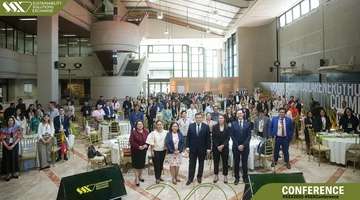
EU, PH push for green solutions in food industry at Sustainability Solutions Exchange 2025
Aiming to develop a sustainable Philippine food industry, the European Union (EU) and the Department... Learn More
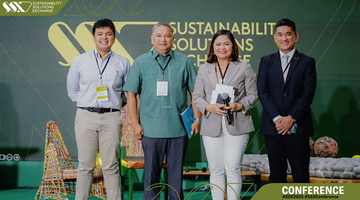
SSX Conference yields strategies for circular PH food industry
Transformative ideas took root at the Sustainability Solutions Exchange (SSX) Conference, where entr... Learn More
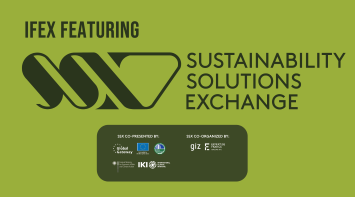
EU, PH aim to future-proof Philippine food industry at SSX 2025
In partnership with the European Union (EU), the Department of Trade and Industry’s Center for Inter... Learn More
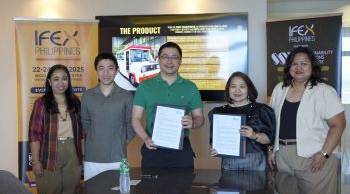
CITEM to spotlight local jeepney maker’s electric multi-purpose vehicles overseas
Seeking greater exposure overseas for its sustainable vehicles, renowned Filipino jeepney manufactur... Learn More
